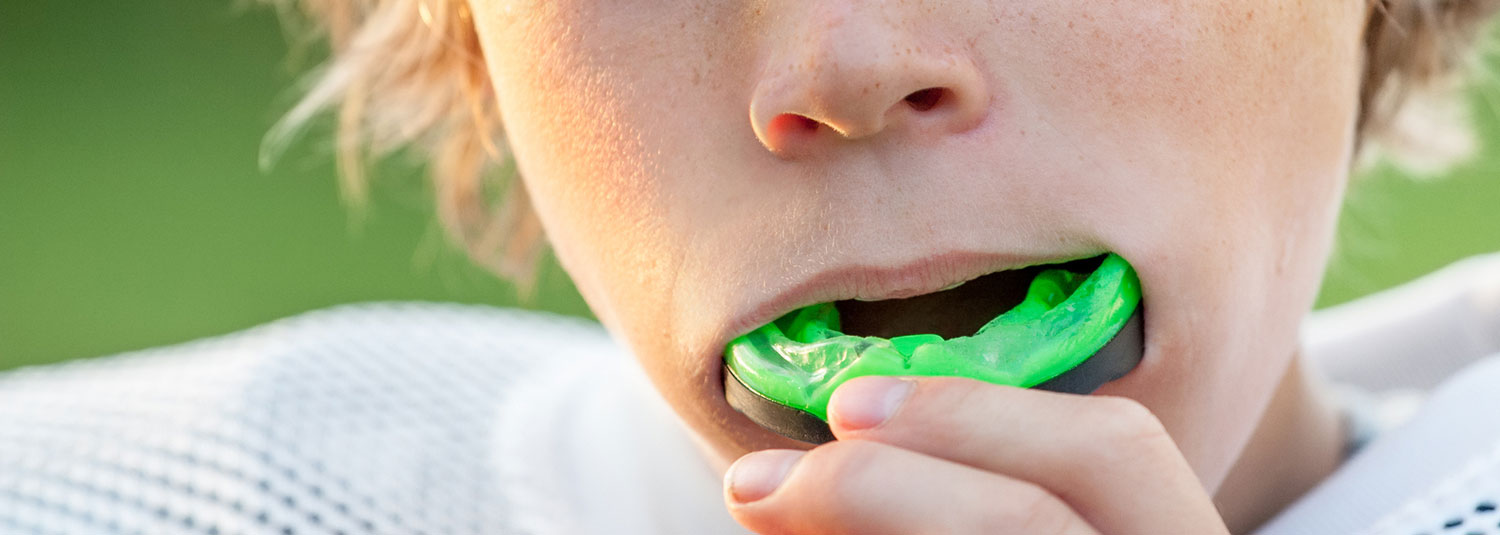The Importance of Mouthguards in Sports

As the number of adolescents and youth taking part in contact sports in the recent years has increased drastically, one other factor that has also seen an unprecedented growth is sports injuries. Estimates suggest that as many as 20 million youth take part in sports, increasing the number of sports related injuries by about 35%. In addition to this, as much as 20% of the overall sports related injuries include injuries that cause extensive dental damage.
It is said that any given athlete has the likelihood of attaining a dental injury about 50 times more than injuring any other body part in the absence of a mouthguard. According to an evaluation by the American Dental Association, mouthguards have the potential of reducing dental injuries by up to 1.9 times.
Dental Injuries from Sports
Dental injuries attained during sports can be grouped into three main categories. Almost all of these injuries are sustained due to a fall or when the athlete comes in contact with a sudden impact. This includes fractures wherein the tooth gets chipped or broken. Root fractures are also included in this category.
Avulsion is also another commonly occurring dental injury due to impact injuries in sports. Avulsion includes the tooth getting knocked out of the athlete’s mouth. In such cases, the tooth gets knocked out along with the entire root instead of only a portion detaching itself as in the case of a fracture.
Luxation is another common dental injury that can occur among athletes. This includes the tooth being displaced inside the athlete’s mouth. The displacement can either be an extrusion wherein the tooth appears slightly longer than the surrounding teeth. A lateral displacement is also possible wherein the tooth is either pushed or pulled from its original place. Luxation also includes an intrusion wherein the tooth appears to be shorter than the ones next to it.
Preventing Dental Injuries in Sports
Most of these dental injuries can be repaired and handled easily if the athlete is immediately treated by our hinsdale dentist and the broken tooth fragments are taken to the dentist in appropriate saline solutions. However, it is always best to take necessary precaution in order to completely avoid any form of dental injury.
It is always advisable to wear a mouth guard in any sport that may involve contact with other players or props and surrounding environment. A good mouthguard should be very comfortable and provide adequate protection to your teeth while being easily cleanable. It should allow speech and should be resistant to tearing.
Always remember that damaged or broken teeth do not grow back. So, protect that perfect smile with a mouthguard while you enjoy your favorite sport.
Contact your hinsdale dentist today for more information on professional sports mouthguards!
Return to Blog